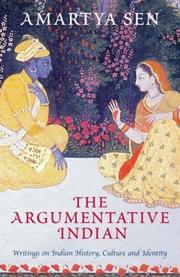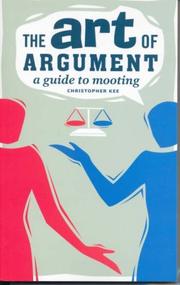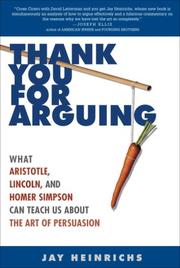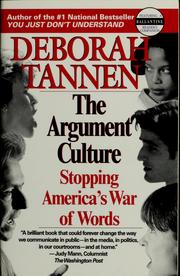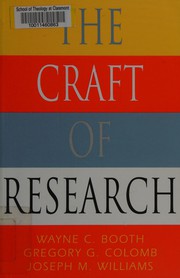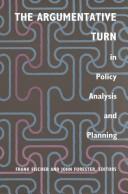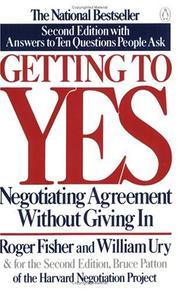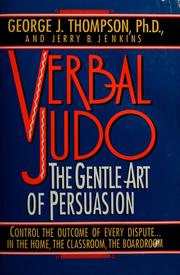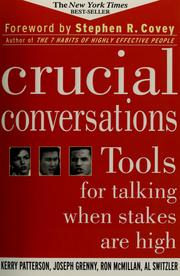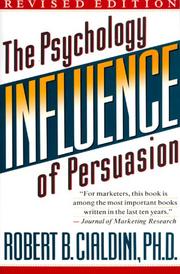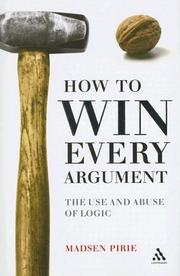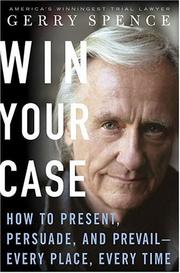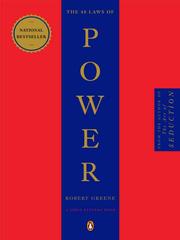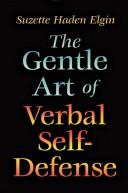Are you looking to sharpen your debate skills? Or perhaps you want to understand the art of persuasion better? Look no further than this list of the 20 best books about arguing. Whether you’re seeking practical advice on effective communication or a deeper understanding of rhetoric, these books on arguing are sure to elevate your discourse game. Get ready to dive into the world of persuasive language and compelling arguments with these top picks.
Contents
- 1 20 Best Books About Arguing
- 2 The Argumentative Indian
- 3 The Art of Argument: A Guide to Mooting
- 4 The Righteous Mind: Why Good People Are Divided by Politics and Religion
- 5 Thank You for Arguing: What Aristotle, Lincoln, and Homer Simpson Can Teach Us About the Art of Persuasion
- 6 The Argument Culture: Moving from Debate to Dialogue
- 7 The Craft of Research
- 8 The Art of the Argument: Western Civilization’s Last Stand
- 9 The Argumentative Turn in Policy Analysis and Planning
- 10 The Art of Argument: An Introduction to the Informal Fallacies
- 11 The Argumentative Indian: Writings on Indian History, Culture and Identity
- 12 Getting to Yes: Negotiating Agreement Without Giving In
- 13 Verbal Judo: The Gentle Art of Persuasion
- 14 Crucial Conversations: Tools for Talking When Stakes Are High
- 15 Influence: The Psychology of Persuasion
- 16 How to Win Every Argument: The Use and Abuse of Logic
- 17 The Art of Persuasion: Winning Without Intimidation
- 18 Win Your Case: How to Present, Persuade, and Prevail – Every Place, Every Time
- 19 The 48 Laws of Power
- 20 The Gentle Art of Verbal Self-Defense
- 21 Winning Arguments: What Works and Doesn’t Work in Politics, the Bedroom, the Courtroom, and the Classroom
- 22 Conclusion
- 23
- 24 Discover the Best Abuse Books in the 2024 Updated Edition
- 25 Books on Mormons: Discover the Top 20 in our 2024 Updated List
- 26 Books about Expeditions: 2024 Updated Guide to Essential Reading
20 Best Books About Arguing
The Argumentative Indian
by Amartya Sen
The Argumentative Indian by Amartya Sen is a thought-provoking exploration of India’s rich tradition of debate and discourse. This captivating book delves into the historical and cultural significance of argumentation in Indian society, showcasing how it has shaped the country’s intellectual and political landscape. Sen’s insightful analysis delves into the complexities of Indian identity and the diverse perspectives that have emerged from a long history of philosophical and ideological debates. Through engaging storytelling and meticulous research, Sen presents a compelling case for the value of open dialogue and dissent in fostering a vibrant and inclusive society. This book about arguing provides a fascinating insight into the power of intellectual exchange and its role in shaping the world we live in today.
The Art of Argument: A Guide to Mooting
by Christopher Kee
The Art of Argument: A Guide to Mooting by Christopher Kee is a comprehensive book on the art of persuasive advocacy. This book about arguing provides a practical and insightful guide to the world of mooting, offering valuable tips on how to construct persuasive arguments, deliver compelling presentations, and engage in rigorous debate. Kee’s expertise in the field of advocacy shines through in this arguing book, as he shares his wealth of knowledge and experience to help readers master the art of effective argumentation. Whether you are a law student, a debater, or simply interested in honing your persuasive skills, this book on arguing is an essential resource for anyone looking to sharpen their ability to craft and deliver persuasive arguments.
The Righteous Mind: Why Good People Are Divided by Politics and Religion
by Jonathan Haidt
The Righteous Mind by Jonathan Haidt is a thought-provoking book about the psychology of morality, politics, and religion. Haidt explores why good people become divided on these contentious issues, delving into the emotional and psychological factors that shape our moral beliefs. Through engaging storytelling and insightful analysis, he challenges readers to understand the moral roots of their own political and religious convictions, and to empathize with those who hold different views. This book is not just about arguing; it’s about understanding why we argue in the first place. Haidt’s exploration of moral psychology provides a fascinating lens through which to view the complexities of human nature and the divisions that characterize our society. The Righteous Mind is a must-read for anyone interested in the intersection of morality, politics, and psychology.
Thank You for Arguing: What Aristotle, Lincoln, and Homer Simpson Can Teach Us About the Art of Persuasion
by Jay Heinrichs
Thank You for Arguing is a compelling book on the art of persuasion, blending ancient wisdom with modern techniques. Jay Heinrichs takes readers on a journey through the power of rhetoric, drawing from the teachings of Aristotle, the oratory skills of Abraham Lincoln, and even the persuasive tactics of Homer Simpson. This engaging book about arguing explores the strategies and tactics used to win arguments, influence others, and master the art of persuasion. Heinrichs’ insightful and humorous writing style makes the book a captivating read, offering practical advice and real-life examples to help readers become more effective communicators. Whether you’re a student, professional, or simply someone who wants to improve their persuasion skills, Thank You for Arguing is a must-read for anyone looking to master the art of rhetoric.
The Argument Culture: Moving from Debate to Dialogue
by Deborah Tannen
The Argument Culture: Moving from Debate to Dialogue by Deborah Tannen is a thought-provoking book that explores the pervasive nature of argument in today’s society. Tannen delves into the ways in which our communication habits have become entrenched in a culture of contention, where debate and conflict are seen as the norm. She argues that this ‘argument culture’ has led to a breakdown in meaningful dialogue and understanding, and offers insights into how we can shift towards more productive and empathetic communication. This book about arguing is a compelling read for anyone interested in improving their interpersonal relationships and fostering a culture of understanding and cooperation. Tannen’s exploration of the impact of argument on our society is both insightful and relevant, making it a must-read for anyone looking to navigate the complexities of modern communication.
The Craft of Research
by Wayne C. Booth, Gregory G. Colomb, and Joseph M. Williams
The Craft of Research is a comprehensive guide to the art of scholarly research and writing. Written by Wayne C. Booth, Gregory G. Colomb, and Joseph M. Williams, this book provides invaluable advice on how to conduct research, analyze sources, and construct strong arguments. It is a must-read for anyone embarking on a research project, as it offers practical strategies for formulating research questions, gathering evidence, and presenting findings effectively. The authors emphasize the importance of clarity, precision, and critical thinking in academic writing, making this book an essential resource for students and researchers alike. Whether you are a novice or experienced researcher, this book on arguing will equip you with the skills to produce compelling and persuasive research.
The Art of the Argument: Western Civilization’s Last Stand
by Stefan Molyneux
The Art of the Argument: Western Civilization’s Last Stand by Stefan Molyneux is a compelling book on arguing that delves into the art of persuasive communication. Molyneux explores the history of Western civilization and the crucial role that argumentation has played in shaping it. The book about arguing provides a comprehensive guide to constructing and deconstructing arguments, logical fallacies, and the art of rhetoric. Through engaging anecdotes and historical examples, Molyneux demonstrates the power of effective communication in influencing and shaping society. Whether you’re a student, professional, or simply interested in honing your debating skills, this arguing book offers valuable insights and practical techniques for mastering the art of persuasion. It’s a must-read for anyone looking to navigate the complex world of discourse and make a lasting impact through effective argumentation.
The Argumentative Turn in Policy Analysis and Planning
by Frank Fischer and John Forester
The Argumentative Turn in Policy Analysis and Planning by Frank Fischer and John Forester is a thought-provoking book about the importance of debate and discussion in shaping public policy. This book on arguing challenges the conventional wisdom that policy analysis should be a neutral, value-free exercise, and instead emphasizes the role of argumentation and persuasion in the policy-making process. Fischer and Forester argue that policy decisions are ultimately shaped by competing interests and values, and that effective policy analysis must acknowledge and engage with these conflicts. Through engaging case studies and insightful analysis, the book about arguing demonstrates how argumentation can be a powerful tool for understanding and shaping public policy. Whether you’re a student, practitioner, or simply curious about the dynamics of public policy, this arguing book offers a fresh perspective on the complex and contentious world of policy analysis and planning.
The Art of Argument: An Introduction to the Informal Fallacies
by Aaron Larsen
The Art of Argument: An Introduction to the Informal Fallacies by Aaron Larsen is a comprehensive and engaging book about arguing. Larsen takes readers on a journey through the world of logical reasoning, teaching them how to identify and analyze informal fallacies in everyday arguments. Through clear and concise explanations, real-life examples, and thought-provoking exercises, this book equips readers with the tools to critically evaluate and construct compelling arguments. Whether you’re a student looking to improve your debate skills, a professional seeking to enhance your persuasive abilities, or simply a curious mind interested in the art of reasoning, this book offers valuable insights and practical knowledge that will sharpen your ability to navigate the complex world of argumentation.
The Argumentative Indian: Writings on Indian History, Culture and Identity
by Amartya Sen
The Argumentative Indian by Amartya Sen is a compelling book on arguing, which delves into the rich history, diverse culture, and complex identity of India. Sen, a Nobel laureate, explores the importance of public debate and discussion in Indian tradition, highlighting its role in shaping the country’s social and political fabric. Through a series of essays, he examines various aspects of Indian society, from its pluralistic ethos to the interplay of religion and culture. Sen’s insightful analysis challenges stereotypes and offers a nuanced perspective on India’s past and present. The book about arguing is a thought-provoking exploration of the power of reasoning and dissent in shaping India’s intellectual heritage. It is a must-read for anyone interested in understanding the multifaceted nature of Indian society and its ongoing debates.
Getting to Yes: Negotiating Agreement Without Giving In
by Roger Fisher and William Ury
Getting to Yes: Negotiating Agreement Without Giving In is a renowned book on the art of negotiation, written by Roger Fisher and William Ury. This classic arguing book offers a groundbreaking method for approaching disputes and reaching mutually beneficial agreements. The authors emphasize the importance of separating the people from the problem and focusing on interests rather than positions. They provide practical strategies for handling difficult conversations, addressing emotions, and finding creative solutions. Through real-life examples and insightful advice, Fisher and Ury demonstrate how to navigate conflicts effectively and build strong relationships. Whether you’re a business professional, a lawyer, or simply someone looking to improve your negotiating skills, this book about arguing is an essential resource for mastering the art of peaceful resolution.
Verbal Judo: The Gentle Art of Persuasion
by George J. Thompson and Jerry B. Jenkins
Verbal Judo: The Gentle Art of Persuasion is a captivating book about the art of communication and conflict resolution. Co-authored by George J. Thompson and Jerry B. Jenkins, this book provides practical strategies for effectively handling difficult conversations and defusing tense situations. With a focus on using words to de-escalate confrontations and influence others, Verbal Judo is a valuable resource for anyone looking to improve their communication skills. Whether you’re dealing with a challenging coworker, a disgruntled customer, or a heated debate, this book on arguing offers insightful techniques for turning potential conflicts into positive outcomes. Thompson and Jenkins provide real-life examples and powerful insights to help readers navigate the complexities of human interaction and persuasion. If you’re looking for an enlightening and practical guide to mastering the art of verbal persuasion, Verbal Judo is the perfect arguing book for you.
Crucial Conversations: Tools for Talking When Stakes Are High
by Kerry Patterson, Joseph Grenny, Ron McMillan, and Al Switzler
Crucial Conversations: Tools for Talking When Stakes Are High is a powerful book about navigating difficult conversations and essential communication skills. Written by Kerry Patterson, Joseph Grenny, Ron McMillan, and Al Switzler, this book provides practical strategies for handling high-stakes discussions with grace and effectiveness. Whether it’s dealing with conflicts at work, addressing sensitive topics with loved ones, or managing confrontations, this book offers valuable insights and techniques for staying calm, focused, and constructive during crucial conversations. With real-life examples and actionable advice, this book is a must-read for anyone looking to improve their communication skills and confidently navigate challenging discussions. If you want to enhance your ability to handle crucial conversations with poise and confidence, this book is an invaluable resource.
Influence: The Psychology of Persuasion
by Robert B. Cialdini
In Influence: The Psychology of Persuasion, Robert B. Cialdini explores the psychology behind the art of persuasion. This insightful book delves into the various tactics used to influence others, from the power of social proof to the principles of reciprocity. Cialdini draws on a wealth of research and real-life examples to illuminate the science behind why people say “yes” and how we can use this knowledge to our advantage. Whether you’re a marketer, salesperson, or simply interested in understanding the dynamics of human interaction, this book offers valuable insights into the subtle and powerful forces that shape our decisions. It’s not just a book on arguing, but a comprehensive guide to understanding and utilizing the principles of persuasion in everyday life.
How to Win Every Argument: The Use and Abuse of Logic
by Madsen Pirie
How to Win Every Argument: The Use and Abuse of Logic by Madsen Pirie is a comprehensive book on arguing that delves into the intricacies of logical reasoning and the art of persuasion. Pirie explores the tactics and techniques needed to effectively present and defend one’s position in any debate or discussion. The book provides valuable insights into the use of logical fallacies and how to spot and counter them, making it an essential guide for anyone looking to improve their debating skills. With clear and concise explanations, Pirie equips readers with the tools to navigate through complex arguments and emerge victorious. Whether you’re a seasoned debater or just looking to sharpen your reasoning abilities, this book about arguing is a must-read for anyone looking to gain the upper hand in any intellectual exchange.
The Art of Persuasion: Winning Without Intimidation
by Bob Burg
The Art of Persuasion: Winning Without Intimidation by Bob Burg is a compelling book on arguing that teaches readers how to effectively persuade others without resorting to intimidation or manipulation. Burg emphasizes the importance of building genuine connections, understanding the other person’s perspective, and finding common ground in order to win people over to your way of thinking. Through real-life examples and practical strategies, this arguing book provides valuable insights on how to be persuasive in a respectful and ethical manner. Whether you’re in sales, leadership, or simply looking to improve your communication skills, The Art of Persuasion offers valuable techniques for influencing others and achieving win-win outcomes.
Win Your Case: How to Present, Persuade, and Prevail – Every Place, Every Time
by Gerry Spence
Win Your Case: How to Present, Persuade, and Prevail – Every Place, Every Time by Gerry Spence is a powerful book on arguing that provides readers with the essential tools to effectively present and persuade in any setting. With his renowned expertise as a trial lawyer, Spence offers valuable insights and strategies for winning arguments, whether in the courtroom, the workplace, or in personal interactions. This arguing book is a comprehensive guide that covers the art of persuasion, the power of storytelling, and the importance of connecting with your audience. Spence’s compelling storytelling and practical advice make this book about arguing a must-read for anyone looking to improve their persuasive skills and increase their chances of prevailing in any argument or debate.
The 48 Laws of Power
by Robert Greene
The 48 Laws of Power by Robert Greene is a compelling and provocative exploration of the dynamics of power. This book provides insightful and often controversial advice on how to gain and maintain power in any situation. With historical examples and psychological insights, Greene dissects the strategies and tactics used by powerful figures throughout history. Whether you’re interested in leadership, negotiation, or simply understanding the dynamics of human interaction, this book offers a wealth of knowledge and wisdom. It’s a must-read for anyone looking to navigate the complexities of power and influence in the modern world.
The Gentle Art of Verbal Self-Defense
by Suzette Haden Elgin
The Gentle Art of Verbal Self-Defense by Suzette Haden Elgin is a renowned book on arguing that provides readers with the tools to effectively handle challenging conversations and verbal confrontations. This insightful book about arguing teaches readers how to recognize and defuse aggressive language, as well as how to assertively express their own opinions without escalating conflicts. Elgin’s approach to verbal self-defense is practical and empowering, offering readers strategies to navigate difficult communication situations with confidence and grace. Through real-life examples and practical exercises, this arguing book equips readers with the skills to effectively manage verbal confrontations and maintain harmonious relationships. Whether you want to improve your communication skills at home, work, or in social settings, The Gentle Art of Verbal Self-Defense is a valuable resource for anyone looking to enhance their ability to handle challenging conversations.
Winning Arguments: What Works and Doesn’t Work in Politics, the Bedroom, the Courtroom, and the Classroom
by Stanley Fish
Winning Arguments by Stanley Fish is a comprehensive book on arguing that explores what strategies work and don’t work in various contexts, including politics, the bedroom, the courtroom, and the classroom. Fish delves into the art of persuasion and provides insightful analysis on how to effectively make a case and sway opinions. He offers practical advice on constructing compelling arguments and debunking fallacious reasoning. Whether you’re navigating a heated political debate, seeking to improve your communication skills in personal relationships, or honing your courtroom tactics, this book provides valuable insights into the dynamics of persuasion. With its engaging and thought-provoking approach, Winning Arguments is a must-read for anyone interested in the art of rhetoric and the power of persuasion.
Conclusion
Arguing is a common part of human interaction, and understanding the art of argumentation can be incredibly valuable. The 20 best books about arguing offer valuable insights into the strategies, techniques, and psychology behind effective argumentation. Whether you’re looking to improve your debate skills, enhance your persuasive abilities, or simply gain a better understanding of how arguments work, these books provide a wealth of knowledge and practical advice. From classic texts to modern insights, the diverse range of titles ensures that there’s something for everyone interested in honing their arguing skills. Dive into these books and unlock the secrets of compelling and persuasive communication.
Which Arguing book is best?
The best book on Arguing can vary with personal preference, but three widely recommended titles are:
- The Argumentative Indian by Amartya Sen,
- The Art of Argument: A Guide to Mooting by Christopher Kee,
- The Righteous Mind: Why Good People Are Divided by Politics and Religion by Jonathan Haidt.
Each offers valuable insights and could be a great starting point.
What are the best books to learn about Arguing?
For those looking to learn about Arguing, there is a wealth of literature that can provide a comprehensive understanding of the subject. Some of the most highly recommended books include:
- The Argumentative Indian by Amartya Sen,
- The Art of Argument: A Guide to Mooting by Christopher Kee,
- The Righteous Mind: Why Good People Are Divided by Politics and Religion by Jonathan Haidt,
- Thank You for Arguing: What Aristotle, Lincoln, and Homer Simpson Can Teach Us About the Art of Persuasion by Jay Heinrichs,
- The Argument Culture: Moving from Debate to Dialogue by Deborah Tannen,
- The Craft of Research by Wayne C. Booth, Gregory G. Colomb, and Joseph M. Williams,
- The Art of the Argument: Western Civilization’s Last Stand by Stefan Molyneux,
- The Argumentative Turn in Policy Analysis and Planning by Frank Fischer and John Forester,
- The Art of Argument: An Introduction to the Informal Fallacies by Aaron Larsen,
- The Argumentative Indian: Writings on Indian History, Culture and Identity by Amartya Sen
These books offer a range of perspectives on Arguing, covering various aspects and approaches to the subject.
What are the best books on Arguing?
The best books on Arguing include:
- The Argumentative Indian by Amartya Sen,
- The Art of Argument: A Guide to Mooting by Christopher Kee,
- Getting to Yes: Negotiating Agreement Without Giving In by Roger Fisher and William Ury,
- Verbal Judo: The Gentle Art of Persuasion by George J. Thompson and Jerry B. Jenkins,
- The Argumentative Turn in Policy Analysis and Planning by Frank Fischer and John Forester,
- The Craft of Research by Wayne C. Booth, Gregory G. Colomb, and Joseph M. Williams.
Each offers unique insights into the subject. While these books on the topic of Arguing are highly regarded, it’s important to note that any list of ‘best’ books is subjective and reflects a range of opinions.
What are the best Arguing books of all time?
Choosing the best Arguing books of all time can vary depending on who you ask, but seven titles that are often celebrated include
- The Argumentative Indian by Amartya Sen,
- The Art of Argument: A Guide to Mooting by Christopher Kee,
- The Argument Culture: Moving from Debate to Dialogue by Deborah Tannen,
- The Argumentative Turn in Policy Analysis and Planning by Frank Fischer and John Forester,
- The Argumentative Indian: Writings on Indian History, Culture and Identity by Amartya Sen,
- Verbal Judo: The Gentle Art of Persuasion by George J. Thompson and Jerry B. Jenkins,
- and Getting to Yes: Negotiating Agreement Without Giving In by Roger Fisher and William Ury.
Each of these books has made a significant impact in the field of Arguing and continues to be influential today.

